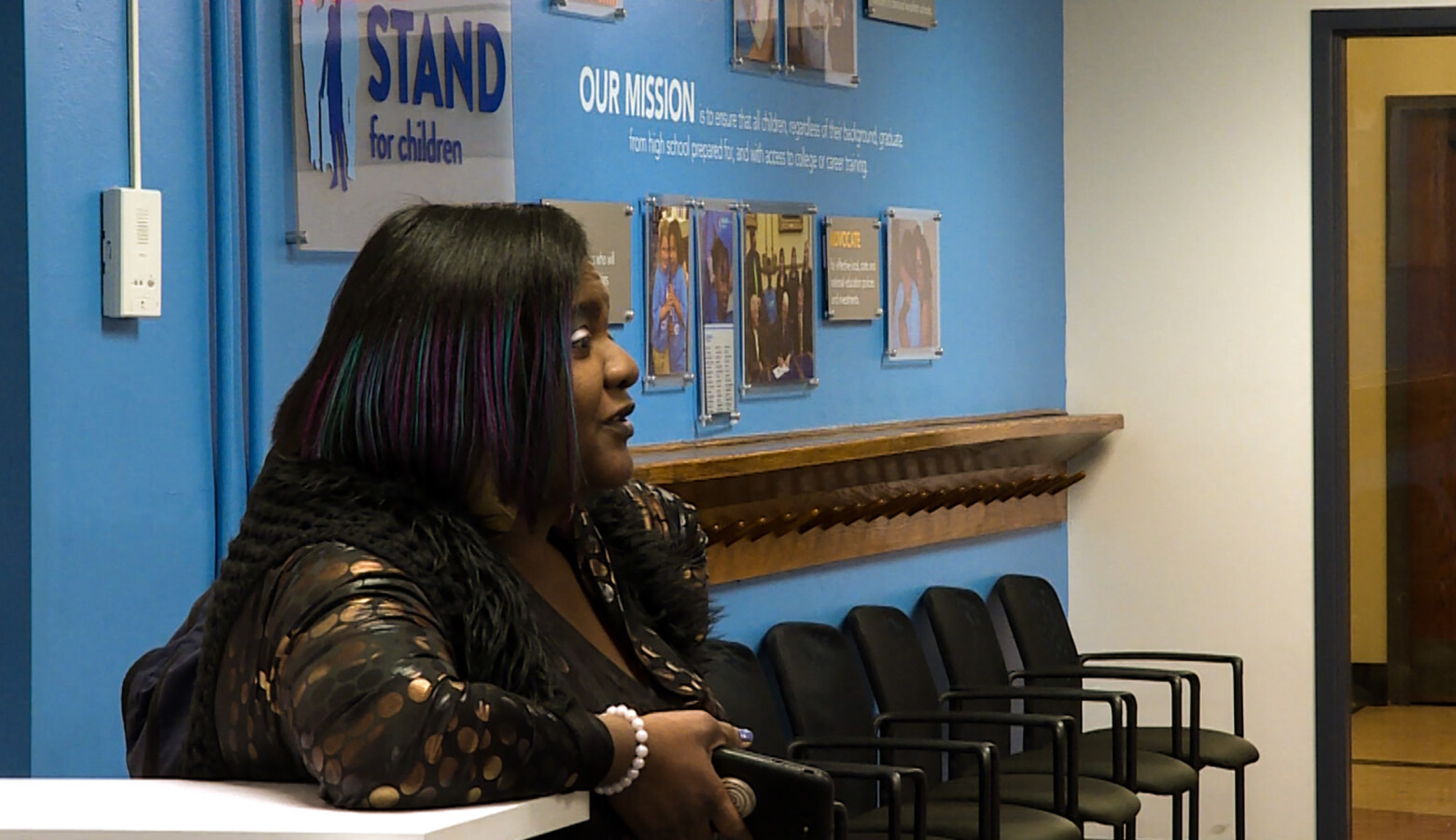Changing Evaluation Law Spurs Questions On Testing, Teacher Accountability

Indiana’s state tests have changed half a dozen times for students in the past decade, and with so much on the line, teachers, schools – and families – are trying to keep up.
Shawanda Tyson found out her son had autism in 2012. She didn’t know what that meant for her or her son’s future, but she was determined to find out.
“I started researching and I said, ‘Oh, this can really get scary. This can really get messy,’” she says.
Tyson says she’s been active in her son’s education, but it hasn’t been easy. She’s had to leave work and sit with him in class – with testing always in mind.
“You know, my son is currently, right now, sweating, if you pass the test, if you don’t pass it, he’s going to summer school,” she says.
Tyson is sharing her concerns because many lawmakers are working to roll back a nearly decade-old policy for evaluating teachers; they want to let schools decide how much weight to give student test scores on performance evaluations. A bill in the General Assembly this year eliminates a piece of state law that says teacher evaluations must be “significantly informed” by student test data.
But Tyson says if teachers are doing their jobs well, kids should pass tests that align with what they’re supposed to teach.
“If they’re centering their curriculum around this test, and the things that they’re doing on the test, and the kids fail it, we have to have some accountability,” Tyson says.
That idea – holding teachers accountable – helped spur a national movement to tie test scores to teacher performance back in 2011. Policymakers wanted to boost student achievement and revamp teacher performance evaluations. But teachers argue using test scores in evaluations isn’t effective, can limit a teacher’s pay unfairly, and results in added stressors that can drive people away from the profession.
Many teachers don’t agree with frequent use of standardized testing at all. Right now, Indiana requires at least three state tests for students in elementary through high school. That’s not counting practice-tests or other test schedules set by individual schools or teachers.
And when you look at the data, improving teacher quality doesn’t always translate to students performing significantly better on tests. Of the more than 72,000 teachers in Indiana, fewer than 900 received low ratings last year – most of them received ratings of effective or highly effective. The same year, just more than one-third of kids in the state passed the new ILEARN test.
Indiana State Teachers Association President Keith Gambill says good teachers know the curriculum, but they also know things like how to direct kids around the classroom and how to navigate students’ unique needs.
“You want to know that the educator in that classroom knows their content, but also knows their students,” Gambill says.
Besides, not all learners are built the same. Gambill compares testing to a foot race.
He says the finish line, the test, doesn’t consider where or how students start the hypothetical “race.” Things like what age they came to school, whether or not they went to preschool, and challenges in their home life.
“That’s where we have veered off course – that we do not have a system that celebrates the great work that is happening with those that are making great improvement over where they started,” he says. “Because we’re so consumed with where are they at this one point in time.”
And that’s why supporters of efforts to decouple test scores from evaluations on a state level call it a huge win for schools and say it could help boost the pipeline of new teachers.
So what is the value of student test scores? Gambill says they should help guide teachers to tailor their instruction for students, but shouldn’t be used to penalize them. Test data also shows significant gaps in passing rates between high-income and white children compared to black and low-income kids, English learners, and special needs students.
House Education Committee Chairman Bob Behning (R-Indianapolis) says that’s why it’s important to avoid disregarding testing completely, since having that information can help target support.
“I truly believe that walking away from it totally kind of exposes kids, minorities, especially to everything’s fine, let’s just move forward,” he says.
And parents like Shawanda Tyson are worried about kids being left behind. She says if schools decouple student scores and teacher evaluations, they need to help parents better understand how teachers are held accountable to a student’s overall success.
“I would like for them to be more transparent. And to have a very open door policy when it comes to curriculum and showing what is being taught,” Tyson says.
So as policymakers and schools decide how to use tests and the data they provide about students, Tyson says it’s important to remember why educators are there in the first place: to help kids learn.
Contact Jeanie at [email protected] or follow her on Twitter at @jeanjeanielindz.

